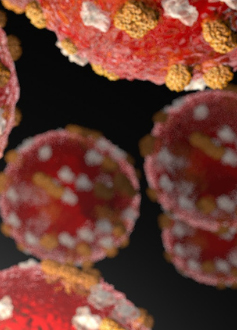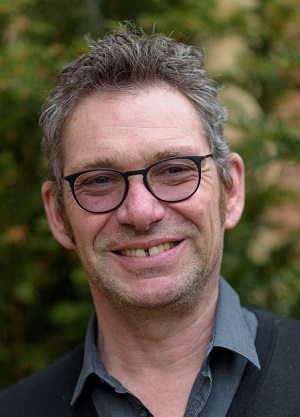
Equality is not just a 'tick box' exercise, everyone needs to take it seriously
Published on 21 December 2023

Turning the tables
Birmingham GPs Dr Aaliya Goyal and Dr Onyi Okonkwo became the RCGP Midland Faculty Equality, Diversity and Inclusion Champions in 2020, and were on the RCGP EDI Steering Group, before stepping down from both roles in June 2023, to allow newer voices to be heard. Aaliya is the Midland Faculty's first diverse Vice Chair, and a nationally elected member of RCGP's Council and Onyi is Midland Faculty Honorary Secretary and an elected Faculty representative on Council.
Aaliya has worked as an Integrated Care Board Clinical Lead in Health Inequalities, Ethnic Minorities and Population Health, and Onyi is the GP member on the Integrated care Partnership Board for Birmingham and Solihull ICS and Clinical Lead for General Practice Staff and Allies EDI network for the ICS . She was involved with the BMA as Co-Chair of the BMA West Midlands Forum for Racial Equality and Equity commissioning.
Here they explain how RCGP members, of all backgrounds, can be active leaders in Equality, Diversity and Inclusion, to raise the morale of GPs and their wider staff teams and better meet the needs of their local populations.
Dr Aaliya Goyal

"It can be unusual to find a GP from a diverse background who hasn't been affected by discrimination and microaggressions from colleagues as well as patients.
"I have been subjected to prejudice because of my South Asian background, visible faith and perceived inexperience, and Onyi because of her Nigerian, West African background. We have both had our professional and leadership ability questioned as females.
"The membership of the College has changed significantly over time and many GPs are international medical graduates. Yet we still have a significant proportion of the membership telling us that they just don't feel heard.
"We can't be afraid to tell colleagues what we need; what would give us a sense of belonging, and what would make us feel valued as an RCGP member. We have started to have those difficult conversations, but we acknowledge that learning goes both ways.
"People often don't understand what a discriminatory issue is. People may not realise that questioning where I am from, or making a negative comment about fasting in Ramadan, for example, actually has a real impact on my sense of belonging.
“Failing to recognise that events are attended by many people who don't drink for a variety of reasons including faith, can make events feel less inclusive. There have been many occasions where only water is available as a non-alcoholic alternative to wine on the table or the limited non-alcoholic options run out faster than alcoholic ones. I have raised this multiple times at awards, ceremonies and events after witnessing the disappointment from colleagues who also don't drink. Given our membership, I hope there will be greater sensitivity around these issues in future.
"The key to successfully resolving issues of discrimination at work is to feel safe and supported by your practice. However, there is still a great fear of retribution and risk of a negative impact on future career. It's my view that there's less accountability in General Practice compared to NHS Trusts. It is very easy to sweep issues under the carpet.
"It's difficult to challenge people who hire and can fire you if you are a salaried or locum GP as many diverse colleagues are.
"Discrimination, as well as deprivation, also drive health inequalities. The doctors with experience in caring for diverse communities, who are subject to discrimination themselves, are under more pressure. Poor doctor wellbeing impacts patient care. There is also a long-term disparity in resource and funding for practices in the most ethnically diverse communities,” she said. "Further problems arise when decision makers who may not be affected by health or racial inequalities themselves deprioritise funding and make other decisions about populations they don't see "on the ground".
Around 30% of people in Birmingham are from an Asian background, and the majority of new GPs have the same ethnic background as Onyi. Aaliya and Onyi's first joint achievement was to change the rules for Council representation from Midland Faculty so that the Faculty could elect one of their two Council representatives from the Board, in line with other Faculties. Surprisingly, despite the rich diversity of Midlands members, prior to the change in by-laws there had never been a diverse Midland Faculty representative on Council in the Faculty's history.
"We helped to create an environment and culture at Midland Faculty Board, under Chair Robin Simpson, where we could have important critical conversations about equality, diversity and inclusion. Making the case to the Board about why this mattered was the first step. This work went well beyond race and covered all protected characteristics under the Equality Act.
"We won a Vibrant Faculties Inspire Award last year, after we organised an event for International Medical Graduates to create a sense of community while recognising the challenges IMGs experience, including social isolation and lack of familiarity with the local systems in a new country. We gave positive advice and signposting to help with this.
"I joined the Faculty Board in 2020. One of the first things I did was to make a case for the Faculty to get involved in an initiative highlighting and celebrating the contribution and culture of South Asian heritage doctors, which would appeal to GPs of all ethnicities. The following year, central College got involved and hence from 2021, RCGP has marked South Asian Heritage Month each year.
"The best way we show inclusivity is through our membership, including encouraging those from diverse backgrounds to apply for leadership positions at all levels and Fellowship."
Dr Onyi Okonkwo

“I currently hold the role of Clinical Lead for the General Practice Staff and Allies Network within Birmingham and Solihull ICS. This network comprises diverse ethnic members and aims to address not just racial issues but inclusivity while working for the NHS irrespective of your protected characteristics. Additionally, I chair a taskforce dedicated to tackling health inequalities specifically affecting African and Caribbean populations within my ICS.
I am a GP senior partner in a practice in one of the most deprived areas of Birmingham and Solihull which incidentally is the most deprived ICS in the country. I am also the GP member on our Integrated care Partnership board setting the strategy for the ICS and holding the ICB to account to deliver on this strategy to improve the 10-year life expectancy for our communities and that was why it was so important that I got involved with EDI and Health inequalities because quite frankly both go hand in hand.
"As a black healthcare professional, the events of 2020 were deeply disheartening. The racially motivated and tragic murder of George Floyd served as a stark reminder that black individuals still face racism within trusted institutions. I observed the disproportionate impact of COVID-19 on our diverse ethnic communities, highlighting our vulnerability to health disparities.
"Then came the COVID-19 pandemic, and the data indicated that black people, as well as those from other diverse ethnic backgrounds, were at a higher risk of contracting the virus and faced a greater likelihood of severe complications or death.
"As a GP from a diverse ethnic background, hearing that race possibly played a role in COVID-19 mortality was concerning. I became the clinical lead for the network as the vaccine came out and together with my EDI network leads within the ICS assessed the evidence and devised a strategy to encourage our communities to get vaccinated, as many of our patients were initially hesitant due to mistrust in vaccine research. We were the first ICS to vaccinate in alternative venues like mosques and churches using the mobile vans.
"I played a role in standardizing staff risk assessment guidance for Birmingham and Solihull. This guidance made it clear that diverse ethnic colleagues faced a higher risk of COVID-19, outlining the necessary protective measures for GPs and staff teams.
"We also addressed the issue of violence and aggression targeting people from diverse ethnic backgrounds at vaccination sites, often involving racist insults. I engaged with the police, and their patrols helped quell these incidents. We also ran programs for practices to teach staff to protect themselves and other patients when they encountered such incidents.
"Simultaneously, we welcomed numerous International Medical Graduates who were unfamiliar with the healthcare system and sometimes overwhelmed. As EDI champions, Aaliya and I advocated for additional support and time for these graduates and ran the first culturally humble IMG induction event which was co-produced with some other IMGs and is now serving as a model for other faculties.
"I believe more GPs should actively participate in EDI initiatives and serve as active bystanders. In addition to engaging with RCGP EDI programs, I recommend resources like the NHS Race Observatory, which provides valuable insights with data on why tackling issues around race and having those conversations matter and how they can lead to poorer health for our communities if not understood." My advice to fellow GPs is to acknowledge that mistakes will happen, but they don't define us. When we err, it's crucial to apologise, learn from it, and work together to make things right. Just as we commit to lifelong learning clinically, we need to commit to the same principle around EDI, we are all on a journey every day and it’s okay to ask questions and educate yourself.
"Hospitals are ahead in terms of EDI compliance and policies. They are held accountable for meeting standards and acting on their data. It's time to focus on collecting primary care data as well. We need dedicated funding for primary care EDI initiatives; merely adhering to Dignity at Work standards is insufficient.
"When I entered the medical profession, there was a prevailing fear that speaking out would lead to reporting to the General Medical Council. My hope is that my son, who is now in medical school, will never have to face such levels of fear and every child irrespective of their race will feel they have the opportunity to grow and flourish wherever their path leads them."
Read more
Thank you for your feedback. Your response will help improve this page.



